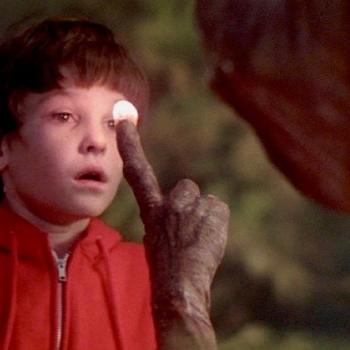The official is ripped like an MMA fighter and paces through smoke pouring from a dark tunnel where hundreds of people are crammed, preparing to rush from the gate and run for their lives.
"No strategy will help you," the man barks. "Any advantage you think you have is useless."
The crowd falls silent.
"The only thing that will save you," he pauses and sucks the Pennsylvania air dry, "is to run."
This scene sounds like something from a horror film, so why is most everyone within earshot of these warnings smiling and laughing? The festive atmosphere is part of the Run For Your Lives experience, a 5k obstacle course race with an unusual wrinkle: some of the obstacles are runner-hungry zombies.
Run For Your Lives is the latest in a string of zombie-related cultural sensations as activities around the world are getting spiced up by the undead.
As someone who loves zombie fiction as well as every tasty nugget served up by The Walking Dead, I'm a part of this current wave. As a researcher and author I've also spent the past couple years trying to step back and figure out why we are so enamored with these representatives of death.
The first reason I believe we're compelled by zombies is that in them we see a reflection of ourselves. As I say in my book Undead, zombies were people once. They were humans who ate Skittles and had babies and danced badly at weddings. Unlike other sci-fi monsters, zombies are familiar in their curlers and khakis. But this picture ain't pretty. Zoms represent ultimate depravity, the worst we could ever become.
Another compelling thing about undead beings like zombies (vampires too) is that they are eternally damned. They are soulless with no hope for redemption. That horde shambling up the street may not only take your life but even your soul. Sure, it's not real but many people never consider such implications outside of the supernatural tales beaming at us through screens. We're forced to consider if there is something worse than death, like an eternal death that might leave us beyond any hope of redemption.
Zombies are also uncompromising. Utter determination gets our attention in a world gone gray. There is an apparent inevitability about these beasts, all appetite and relentless. We cling to the possibility of survival even though we know that those fiends, like death itself, will eventually get us.
Back at the zombie 5k I chat up a guy named Mark. He's preparing to run for his life all by himself and isn't confident he'll make it through unscathed. I ask Mark what attracts him to all this zombie stuff.
"I like the survival aspect of it more than anything," he says, "and how the zombies are more of a nuisance and you actually have to worry about the actual people."
People. Those fellow survivors are always the ones who really mess everything up while the world burns. One thing that reality increasingly has in common with fiction of the undead is how insane people act.
In recent months, multiple news stories have appeared about people eating other people. Have you really considered that? Humans who had childhoods and functioned in society for years are suddenly biting into other humans! What is even going on?
More amazingly is how we react through social media sites like Twitter. Thousands of people are giddy with jokes and comments that maybe the zombie apocalypse is really beginning. Isn't this awesome loljkjk!?!
I walk my dog a lot and often try to imagine what it would really be like if all my neighbors suddenly turned into brain-hungry zombies. Have you ever projected one of those movies onto your life? We wouldn't be laughing. But there's a reason for those types of reactions, a typical response in modern societies in which excitement, even horror, seems to trump the monotony of routine existence.
The same thing happened on the eve of World War I. Humanity was parading into the most terrible event the world had ever seen and parties were breaking out across Europe. Apparently we can only take so much automated monotony before we choose any other alternative, unpleasant as it might be. It's all Fight Club philosophy really.
Chuck Palahniuk—the Fight Club creator—understood the emptiness of trying to find meaning through material things. Searching for purpose in life through the winding aisles of Ikea doesn't ultimately lead to anything but disappointment. It's as useless as washing your car during the apocalypse.
Most of us spend a large chunk of our lives trying to bridge the gap between merely existing and truly living. We struggle with a bland existence because we recognize that fulfillment doesn't come from anything in the physical world. So how to reconcile these inner spiritual longings? Zombies help us make some sense of such questions. I personally believe a connection to God is the only thing that bridges that gap.




